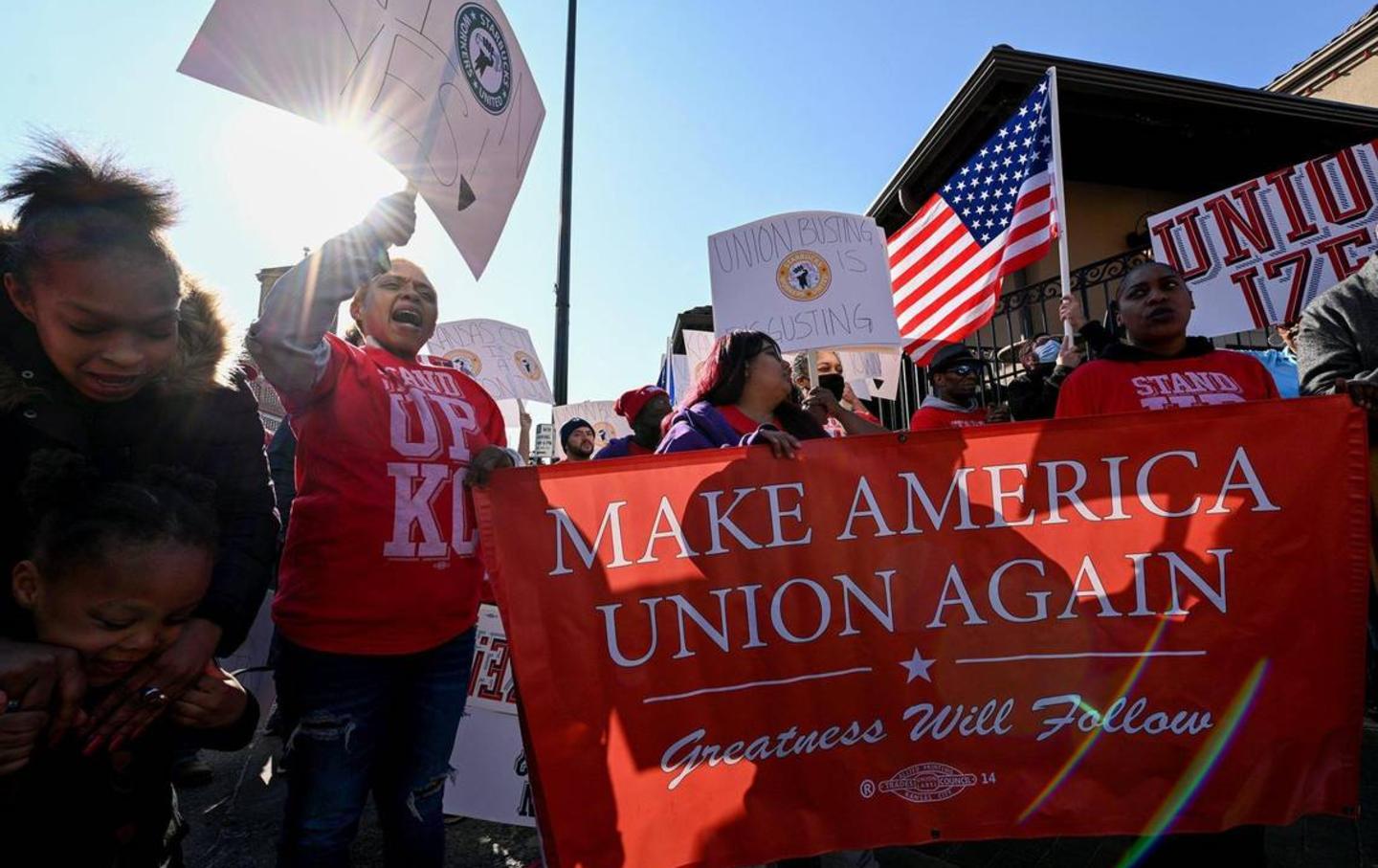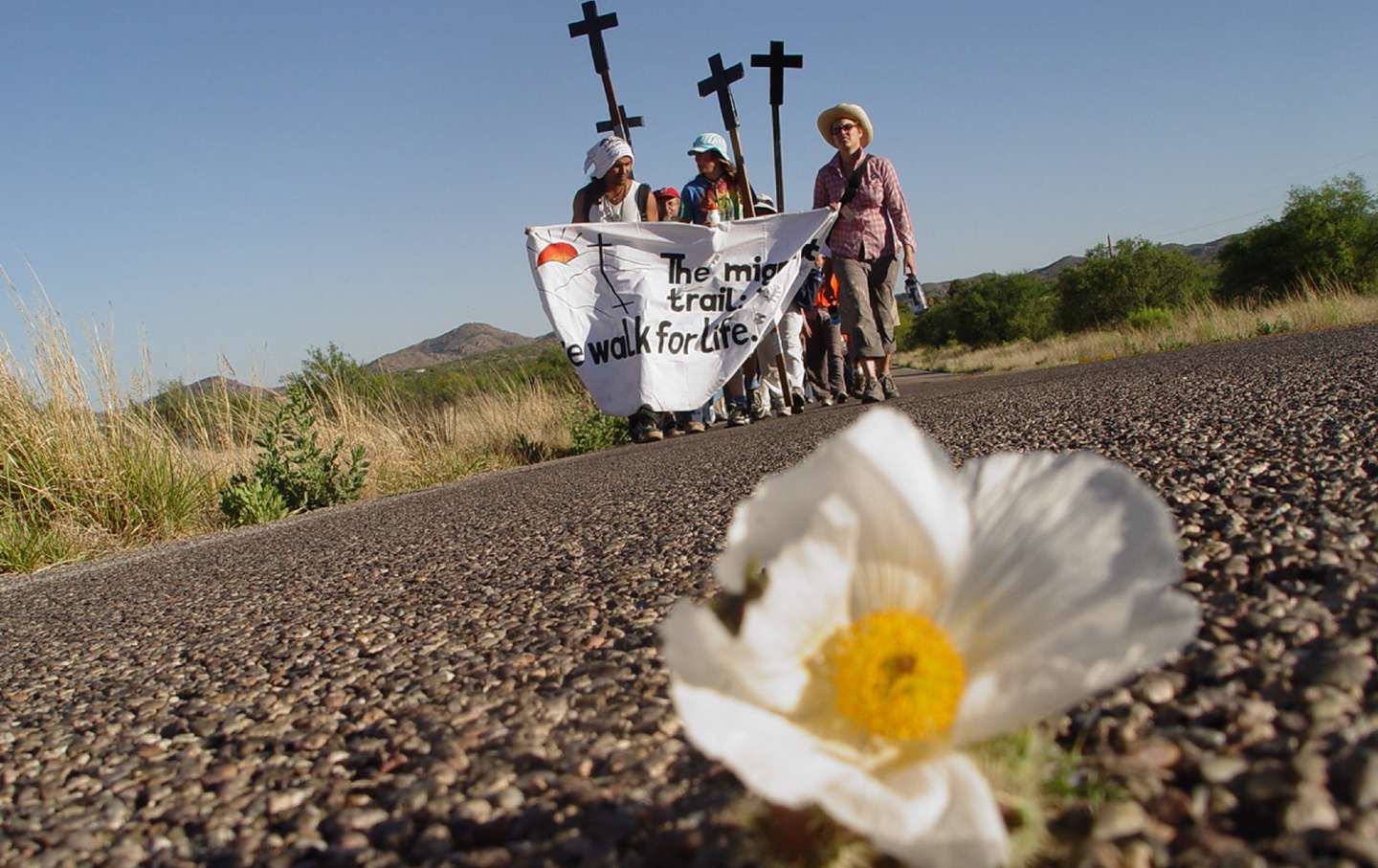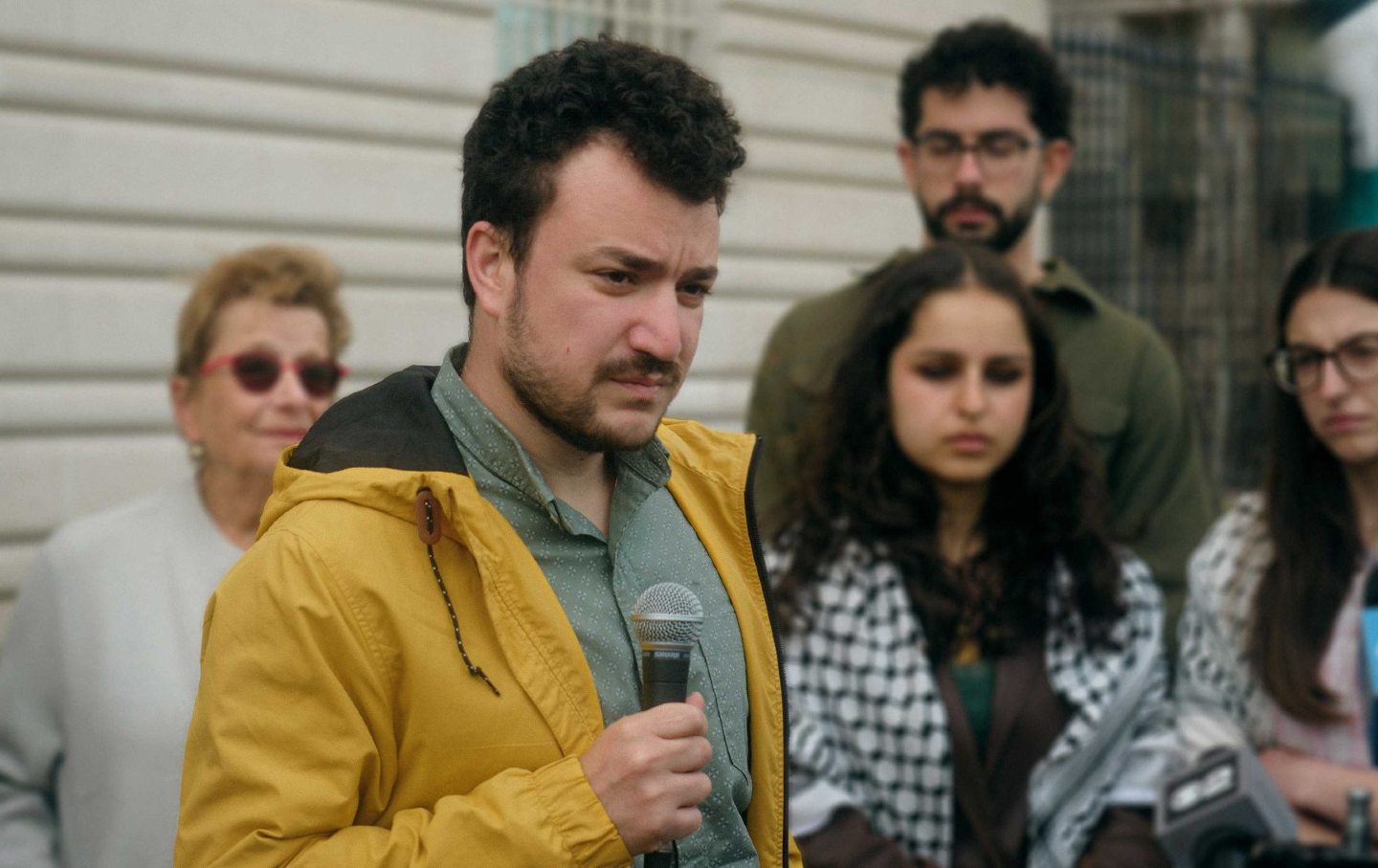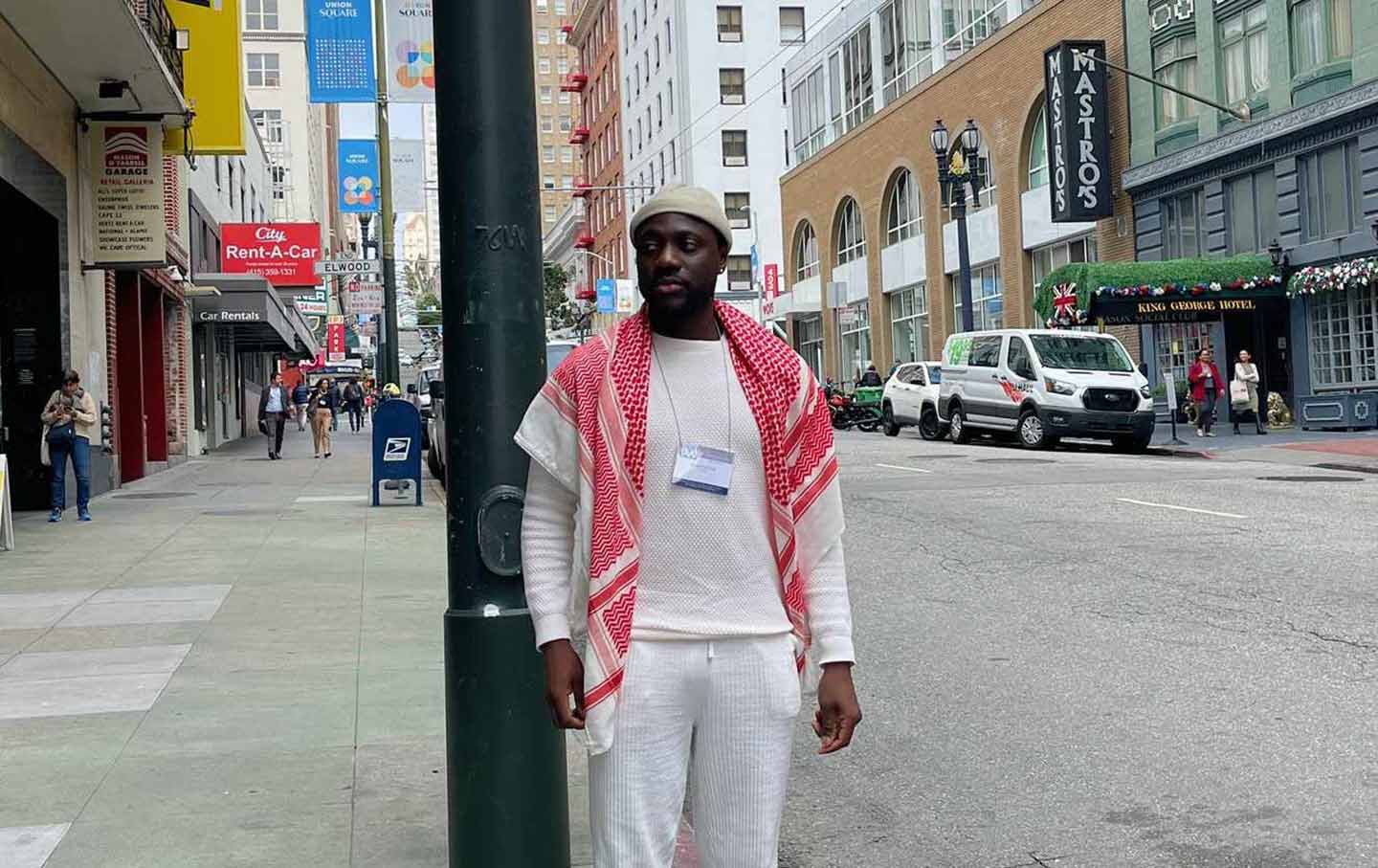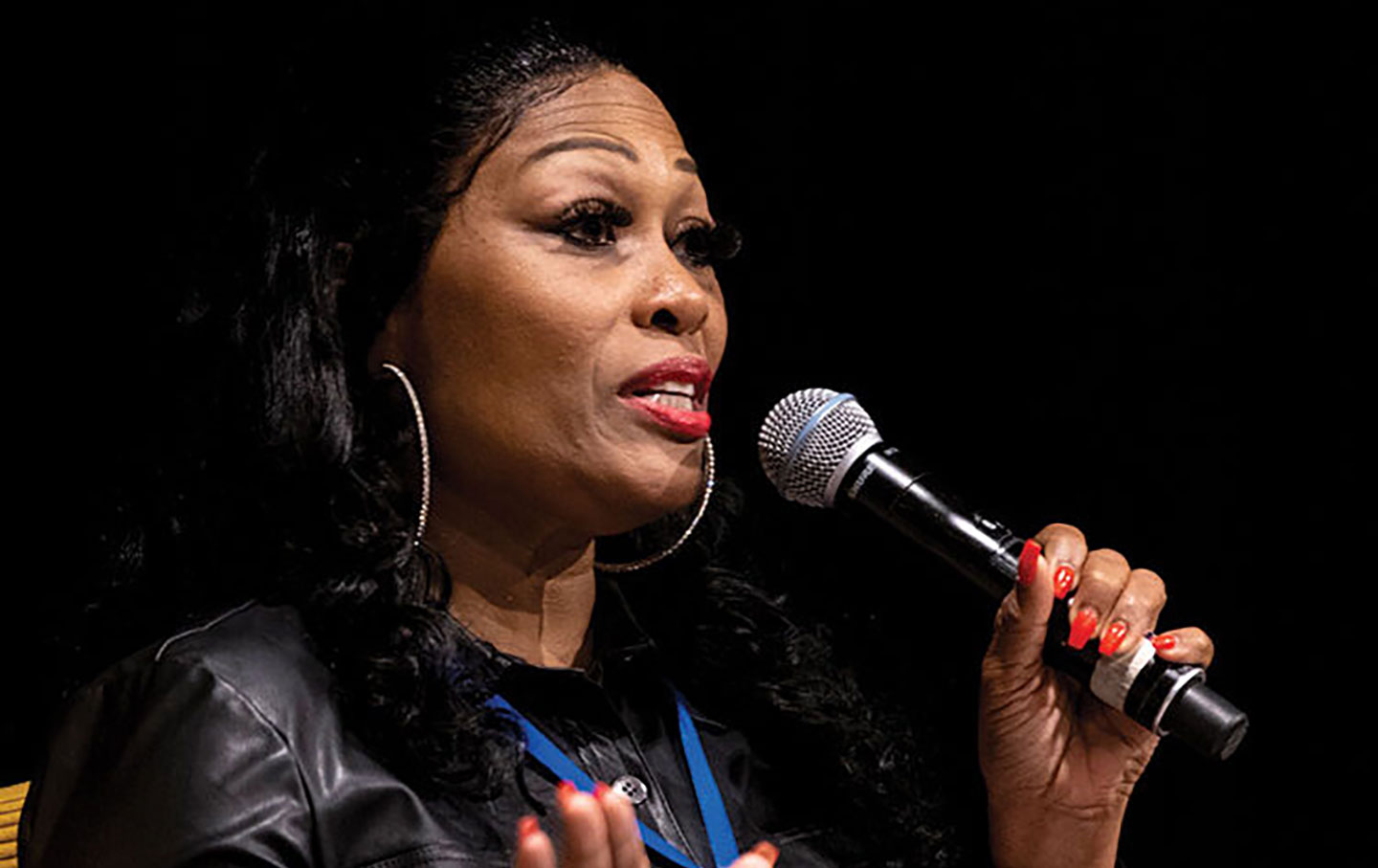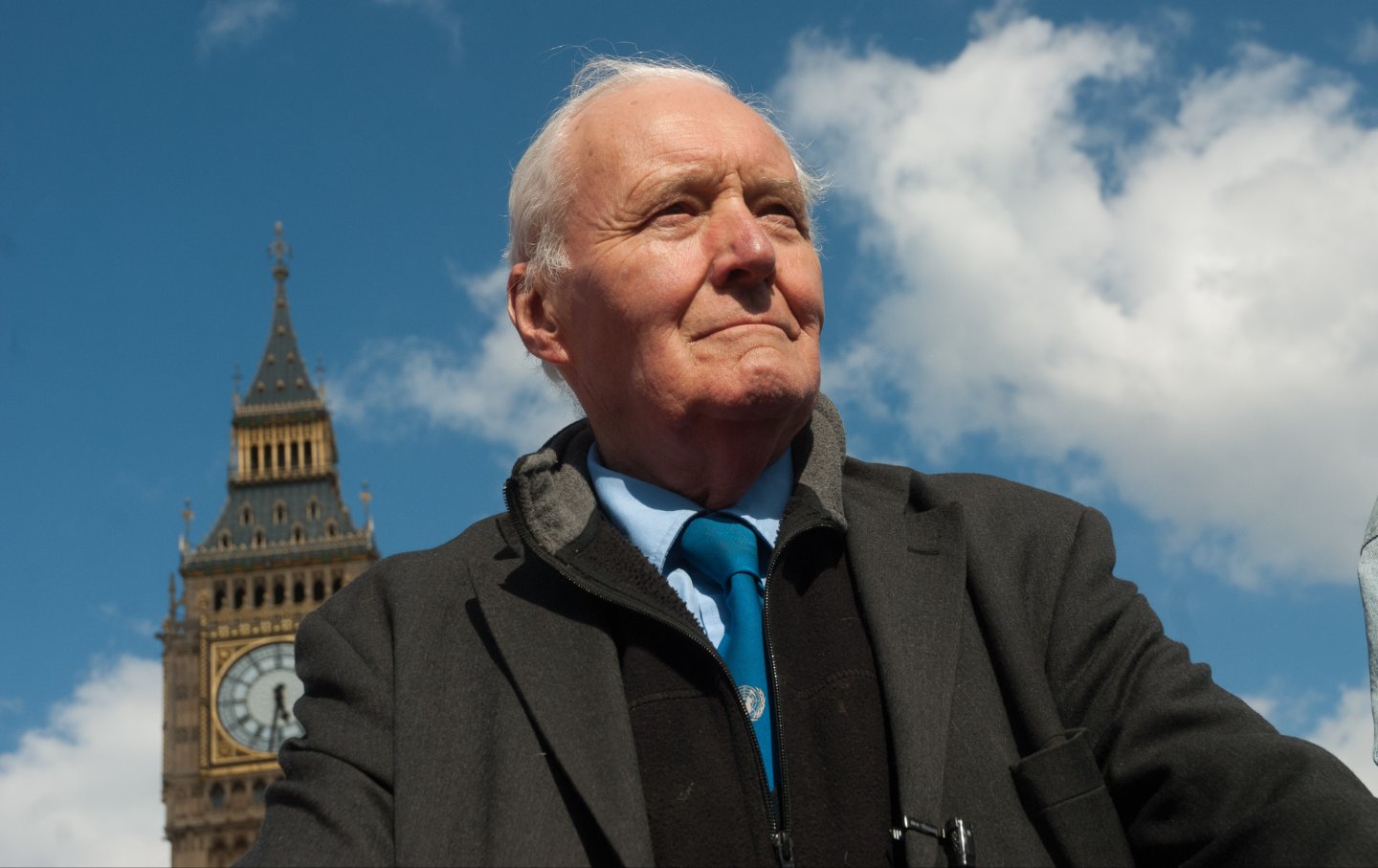Why Students at Columbia University Are Occupying Hamilton Hall
Pro-Palestine students have taken over the same building that anti-Vietnam War and anti-gentrification protesters occupied in 1968.
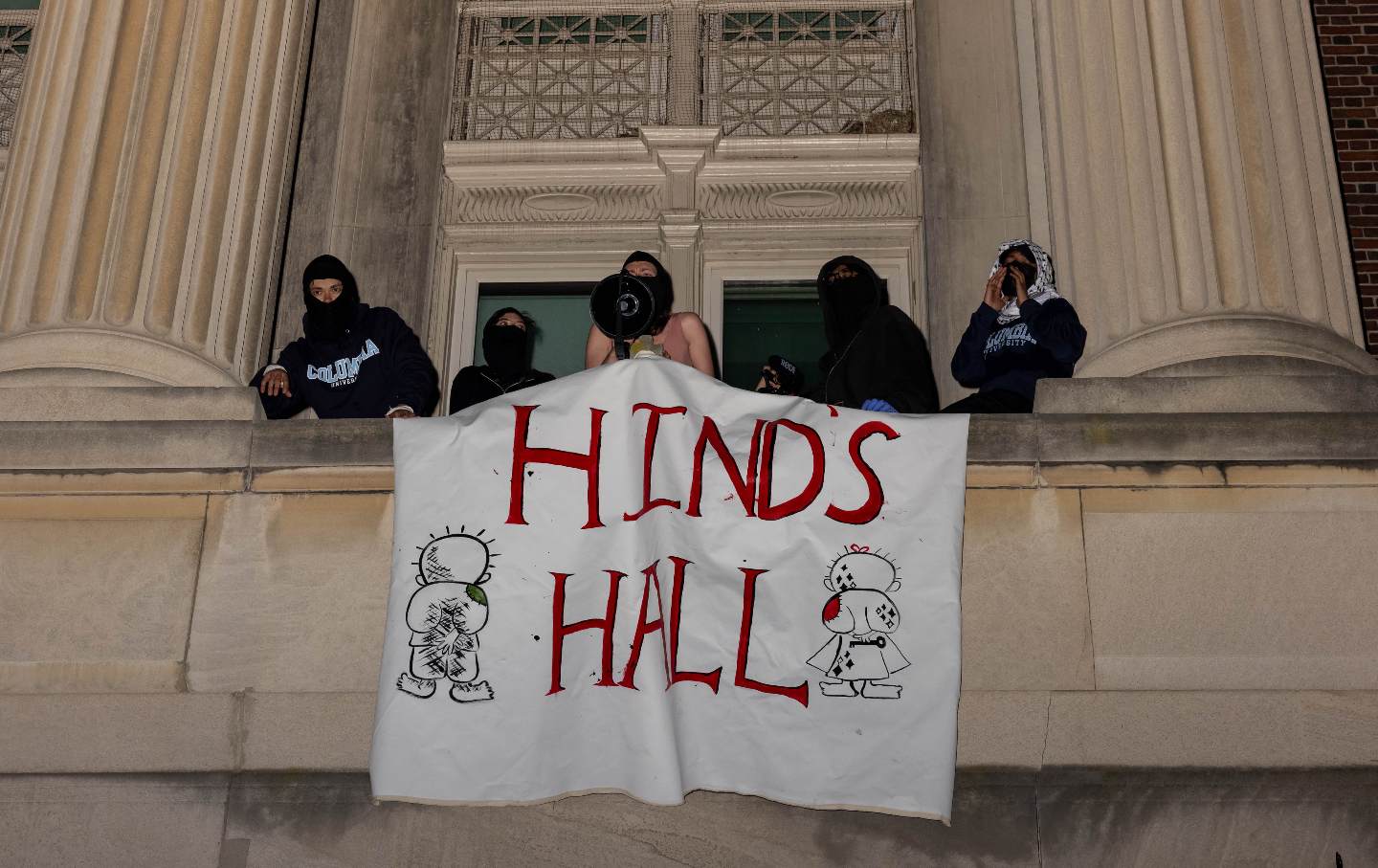
Demonstrators from the pro-Palestine encampment on Columbia’s Campus show a banner as they barricade themselves inside Hamilton Hall.
(Alex Kent / Getty)On April 29—nearly two weeks after the initial Gaza Solidarity Encampment at Columbia—University President Minouche Shafik released a statement saying that the school “will not divest from Israel.”
Organizers started negotiations with administration after setting up their encampment. But when the university announced that it would evict and suspend students staying in the encampment after 2 pm on April 29, organizing coalition Columbia University Apartheid Divest (CUAD) said that they had frozen talks until the university “comes to the table in good faith.”
The school was “toying with us,” said one organizer, whose name is withheld to protect him from potential retaliation. “Nothing concrete came out; they barely budged on anything,” he said. But the students decided to keep fighting. “What is there that we can do to escalate—to say we mean business?’”
On April 30, students occupied legendary Hamilton Hall—the same building that anti–Vietnam War and anti-gentrification protesters took over in 1968. Dozens have shuttered themselves in the hall until, as one protester with a bullhorn shouted from the occupied balcony, “Columbia meets every one of our demands.” The administration has since announced a complete lockdown of Columbia, with only students living on campus and “employees who provide essential services to campus buildings, labs and residential student life” permitted entry.
The action at Hamilton Hall—which activists are calling “Hind’s Hall”—began at around 12:30 am. Students, many wearing keffiyehs, jogged over from different points on campus and streamed into the hall. An organizer announced that the building had been liberated in honor of Hind Rajab, “a 6-year-old Palestinian child—murdered in Gaza by the Israeli Occupation Forces funded by Columbia University.”
Those inside stacked wooden chairs to secure the internal entrance of Hamilton. Meanwhile, picketers sealed doors with metal picnic tables, trash cans, and planters. This action drew attention from at least two Columbia students, who infiltrated the picket and attempted to physically block the placement of a table at one of the entrances. “This is mob rule; this is despotism!” A friend of the counterprotesters came to “de-escalate” by leading them away from the entrance. After they left, protesters resumed barricading the door, while more students began gathering in front of John Jay Hall to watch. Some—wearing heels and floor length gowns—had just left a Theta sorority formal. Others emerged in pajama pants from their dorms.
Inside Hamilton Hall, protesters used copies of the Columbia Daily Spectator to cover the ground-level windows and hinder visibility to outsiders. Around 1:30 am, the crowd erupted into cheers as a Palestinian flag was unfurled from a third-floor window.
After the occupation was complete, CUAD posted a press release on X, formerly Twitter, that identified those inside Hamilton as an “autonomous group” who represent the continuation of the university’s long history of student activism “which Columbia once repressed, but now celebrates.”
“Young people are realizing [that they] are able to follow the suffering of other people and turn that into something generative—refusing the restriction on humanity,” said Layal, a student organizer. “This is not a space of violence or destruction. There’s nothing that’s being reduced. It’s only generative. My hope is that people on the outside can try to understand that instead of aligning themselves with structures that are so war-making, so geared towards genocide, death, and destruction.”
By 3 am, the steps of the sundial were covered by dozens of seated demonstrators who listened as protest leaders spoke into a microphone. “Despite our unimaginable loss and immense grief at this moment, we must not abandon hope,” one student said. “The occupier wants us to feel hopeless. They want us to believe that Gaza is unattainable—a totally lost cause. Make no mistake. This is a sad attempt to quell our increasingly powerful movement for liberation.”
“We talked to the administration for over one week and they gave us nothing,” another student protester said, as the crowd cried “shame!”
On April 29, students at Barnard College had passed a referendum with 91 percent of voters favoring divestment, after a similar referendum passed at Columbia College last week in which 76 percent of students voted yes to divest. “We did not have to take a building—people could have gone to sleep. We could have had a restful end to the semester, but Columbia refused to listen to the demands of its students,” she said. “Hundreds of us were outside tonight. Hundreds of us are in support of Palestinian Liberation, but the administration still claims that there is no consensus.”
Popular
“swipe left below to view more authors”Swipe →“The movement here at Columbia has inaugurated something new across the country,” said the last speaker to stand before the sundial. The crackdown by the administration and the NYPD on Columbia’s first encampment had a significant domino effect—inspiring dozens of similar campus occupations nationwide. “Tonight the students at Columbia have led the way once again.”
“There’s much hardship in Gaza right now,” he told the crowd as a banner reading “Liberation Education” unraveled on the West side of Hamilton Hall. “But our steadfastness is nothing compared to the steadfastness that is required to resist the ongoing genocide. So,” he said, pausing to catch his breath, “let’s all tap into that collective feeling and be ready to…free, free Palestine.”
Hold the powerful to account by supporting The Nation
The chaos and cruelty of the Trump administration reaches new lows each week.
Trump’s catastrophic “Liberation Day” has wreaked havoc on the world economy and set up yet another constitutional crisis at home. Plainclothes officers continue to abduct university students off the streets. So-called “enemy aliens” are flown abroad to a mega prison against the orders of the courts. And Signalgate promises to be the first of many incompetence scandals that expose the brutal violence at the core of the American empire.
At a time when elite universities, powerful law firms, and influential media outlets are capitulating to Trump’s intimidation, The Nation is more determined than ever before to hold the powerful to account.
In just the last month, we’ve published reporting on how Trump outsources his mass deportation agenda to other countries, exposed the administration’s appeal to obscure laws to carry out its repressive agenda, and amplified the voices of brave student activists targeted by universities.
We also continue to tell the stories of those who fight back against Trump and Musk, whether on the streets in growing protest movements, in town halls across the country, or in critical state elections—like Wisconsin’s recent state Supreme Court race—that provide a model for resisting Trumpism and prove that Musk can’t buy our democracy.
This is the journalism that matters in 2025. But we can’t do this without you. As a reader-supported publication, we rely on the support of generous donors. Please, help make our essential independent journalism possible with a donation today.
In solidarity,
The Editors
The Nation

